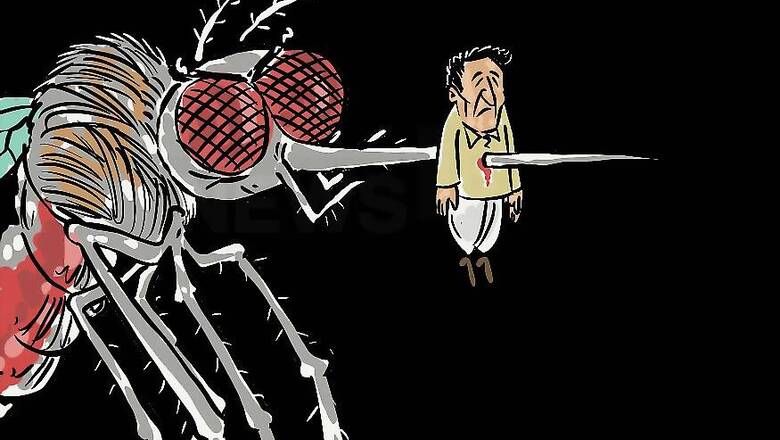
views
Mufti Liaquat Ali Rizvi, a local leader of Sunni Tehreek, died of dengue fever at the Holy Family Hospital in Rawalpindi, Pakistan on Wednesday. He was a member of coordination committee of Sunni Tehreek Punjab chapter and District Peace Committee. He was brought to the hospital with dengue symptoms two days before demise. His house is located in Islamabad’s Ghauri Town.
Sunni Tehreek Rawalpindi Division chapter president Allama Tahir Iqbal Chishti said that the religious scholar was admitted to Holy Family Hospital due to dengue fever and died early Wednesday morning, the Dawn reported.
He said the funeral prayers were held on Wednesday afternoon which was attended by a large number of people from various walks of life. Sunni Tehreek Chief Sarwat Ijaz Qadri also attended the funeral prayers.
On the other hand, a senior doctor at HFH said that the patient was admitted to the hospital’s dengue ward, however, the case report was sent to Dengue Expert Advisory Group as he was also suffering from other ailments.
The World Health Organization's 2009 classification divides dengue fever into two groups: uncomplicated and severe. This replaces the 1997 WHO classification, which needed to be simplified as it had been found to be too restrictive, though the older classification is still widely use including by the World Health Organization's Regional Office for South-East Asia as of 2011. Severe dengue is defined as that associated with severe bleeding, severe organ dysfunction, or severe plasma leakage while all other cases are uncomplicated.
The 1997 classification divided dengue into undifferentiated fever, dengue fever, and dengue haemorrhagic fever. Dengue haemorrhagic fever was subdivided further into grades I–IV. Grade I is the presence only of easy bruising or a positive tourniquet test in someone with fever, grade II is the presence of spontaneous bleeding into the skin and elsewhere, grade III is the clinical evidence of shock, and grade IV is shock so severe that blood pressure and pulse cannot be detected. Grades III and IV are referred to as "dengue shock syndrome".

















Comments
0 comment